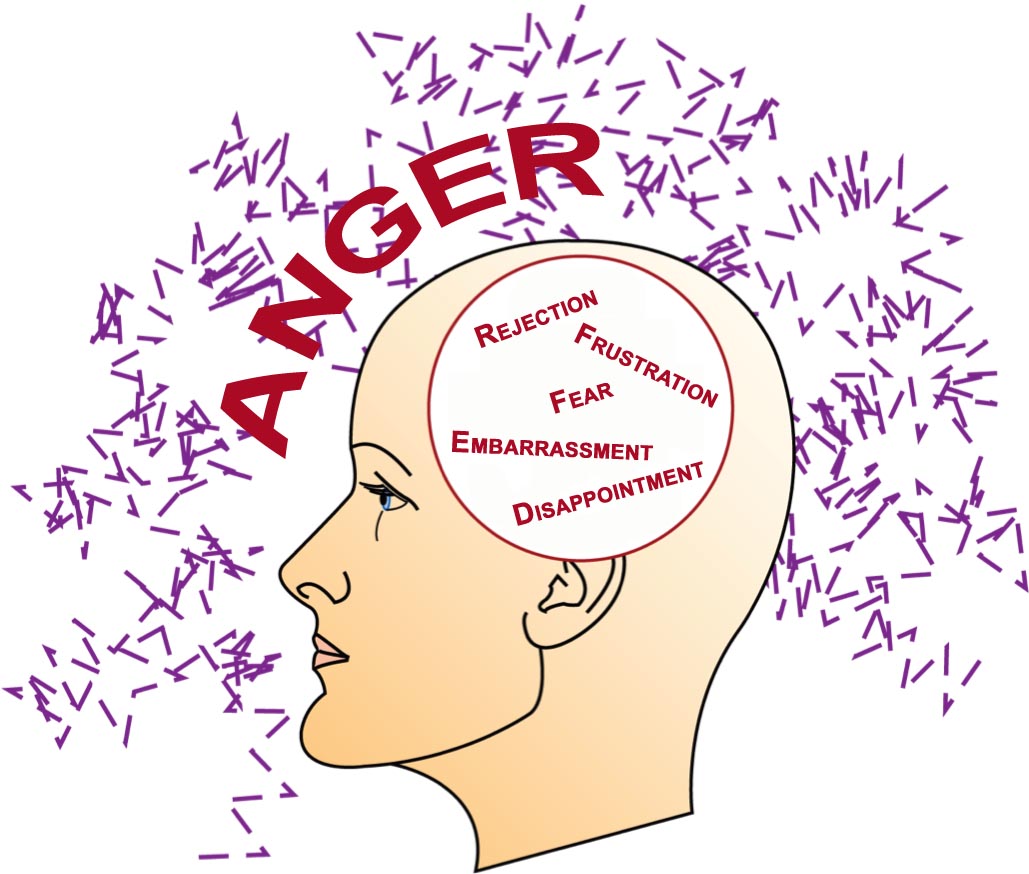
Q: I have a manager who is always angry. She gets angry when I do as she has asked. She gets angry when I don’t do as she has asked. It seems like she is always angry at everyone all the time. Everyone on our team goes to great lengths to avoid her. In fact, the first thing we do every morning is assess the level of her irritation before the day gets under way. Why are some people always angry, and is there anything you recommend that would help the situation?
A: Let’s take a moment to define “anger.” Anger is an emotion that usually arises because of an individual’s perceived loss. Their perceived loss results from something someone did that in their mind is unfair or unwarranted. What is so interesting about anger is that anger is a secondary emotion that serves to veil our more vulnerable emotions—what we feel first.
To state it more formally, our perception of loss creates our emotions either because of the way we interact with others or because of the way we perceive ourselves.

Interacting with Others
The perception of loss we experience in dealing with others gives rise to five primary emotions. Primary emotions that might be expressed outwardly as anger are:
Let’s define each primary emotion and give you a verbal cue which may help you recognize which primary emotion is behind the anger.
Frustration occurs because of violated expectations, broken promises, or commitments surrounding performance issues. You know that expectations are at issue when you hear,
“Your failure to meet the deadline cost us the contract.”
Embarrassment results from an attack on someone’s person. Such an attack is made worse if it is made in front of others. You will know an attack has occurred if you hear,
“She actually insulted me in front of the entire team.”
Disappointment arises from the loss of an anticipated gain. When anticipation collides unhappily with reality, you might hear,
“After we responded to all their nitpicky requests, you’re telling me that they still didn’t accept our proposal?”
Fear results when the actions of others threaten our security or safety. Safety is at issue when you hear the following:
“That jerk nearly hit the front of our car and killed us!”
A feeling of Rejection may arise when someone says or does something that negates or invalidates the way we think or perform. For example, if a person values personal autonomy in doing their work, a value violation might sound like this:
“It drives me crazy when he stands over my shoulder and constantly tells me what to do!”
Any time an individual feels frustrated, embarrassed, disappointed, afraid, or rejected, that primary emotion may look like anger. This display of anger emotion results because the individual perceives the loss of a value.
Perception of Self
Sometimes, our perception of ourselves creates an emotion that is expressed by anger. I believe that sometimes leaders are actually angry at themselves when they are outwardly expressing hostile feelings. Maybe your manager is angry because she failed to foresee the challenges that would arise when she asked you to accomplish a task. Perhaps she’s angry because she failed to share her expectations clearly, and her lack of clarity showed up in your results. Unfortunately, you as the employee end up catching the brunt of her anger. You may even take her anger personally, as you interpret yourself to be at fault. In many cases, a manager’s blame takes the place of personal responsibility.
Before offering some strategies for dealing with anger, remember that anger is an emotion or Energy in motion. Because we all generate energy, we are also containers or vessels of energy—which we call emotion. We either fill up our vessels or we allow others to fill up our vessels for us.
We know that your manager is filled with the energy of emotion, but we don’t know if that emotion is being generated by her or if someone else is dumping it on her. What we can confidently say, however, is that her vessel is full and that she is dumping or spewing its contents—her anger—on everyone around her. Unfortunately, her emotional energy pushes people away; no one likes to be around a person who is “always angry.” Your manager’s emotional state keeps her from connecting with and understanding—and being understood by—others.
Here are some strategies you might try.
Don’t take it personally. Remember that a person’s emotion says more about them than it does about you. Why? Their emotion is product of a their perception. Recognize that there is something going on in the person’s head that is driving the emotion. That something is what you want to discover. Asking questions is a great way to begin.
Acknowledge their feelings. Acknowledging a person’s feelings has the effect of reducing the emotional energy they are displaying. Use any of the following phrases:
“I can see you’re upset.”
“I can see you have strong feelings about…”
“I can see this means a lot to you.”
Ask questions to understand. After acknowledging a person’s feelings, follow up with an open-ended question.
“I can see you’re upset (Emotion). What’s going on?”
Listen for what is wanted. If you ask enough questions, they should tell you their story. Embedded in their story is information about what they wanted and didn’t get—their values. Don’t hesitate to ask questions to clarify what they wanted if you are in doubt. Remember that when a person has a negative complaint, it is really their expression of a positive value.
Look for opportunities to affirm a person’s values. Once you know what is important to a person, don’t hesitate to sincerely affirm the person’s value. For example, if your manager really values serving your customers, you would look for an opportunity to say something like this:
“I also appreciate the importance of serving our customers well. Can we
talk about how we can do that better?”
Notice that once we affirmed their value, we shifted the conversation to addressing the current challenge. This focuses the conversation on making vital improvements.
Look for opportunities to share appreciation. Look for opportunities to recognize what your manager does well and recognize that gossiping and complaining about her conduct behind her back does not help the situation. Engaging in that type of behavior generates an energy all its own that your manager picks up on, and it will often make the situation worse.
Dealing with emotion is a fascinating topic. I hope you recognize that a person’s outward emotion—anger—is really a signal of a person’s perception of loss. The challenge is to defuse the emotion, identify their perceived loss, and create a plan of action to address the challenge. In other words, the challenge is to find a way to work together effectively.
Best of luck!